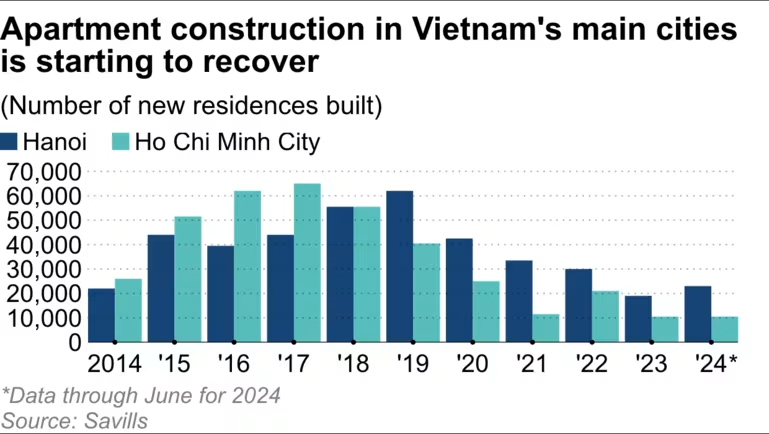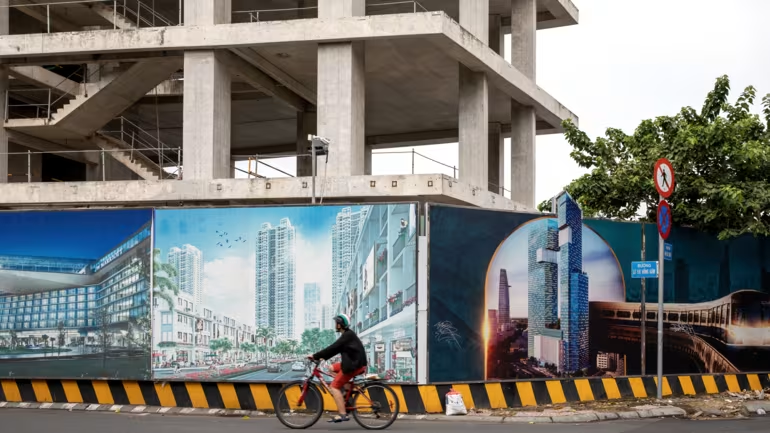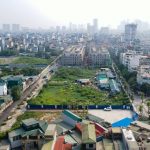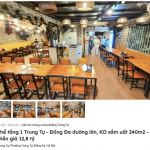“If I could afford it, I’d love to live in an apartment complex,” she shared. “They have swimming pools, walking areas, and the atmosphere is so pleasant.”
Many young people like Tran (28) say they cannot afford to buy property, partly because Vietnam is not building enough new homes, and with high demand in a rapidly growing economy, prices remain high. According to data from real estate company Savills, the number of new homes is at its lowest in a decade, although the industry seems to have avoided a collapse like that seen in China, most notably with Evergrande’s debt crisis.

Industry experts suggest that in recent years, the Vietnamese real estate market has been impacted by the financial difficulties of property developers and legal issues with projects. However, things are starting to look up. More relaxed regulations in the new Land Law are fueling hopes of a recovery, although few believe supply will meet the growing demands of the middle class anytime soon.
Unlike China, Vietnam hasn’t overbuilt and created a bubble, says Troy Griffiths, deputy CEO of Savills, speaking to Nikkei Asia. The two largest cities, Hanoi and Ho Chi Minh City, need around 60,000 new homes each year, but only half that number is likely to be completed in 2024, according to investment bank UBS in a report titled “Riding the Recovery Wave.”

Echoing this sentiment is Thanh Pham, deputy director at real estate consultancy CBRE, who says that demand is so high that buyers often purchase apartments, both new and pre-owned, without a certificate of ownership.
“The Vietnamese market is different from other markets. Unlike China, there isn’t an oversupply here,” she says.
But as the crisis in China escalated, some drew parallels between the two markets, both of which are popular for off-plan property purchases. Chinese citizens halted mortgage payments as they saw unfinished projects dot their cities. Vietnamese buyers also started to worry that developers would run out of funds before completing projects and handing over apartments.
However, in Vietnam, a country of 100 million people, the issue is on a “much smaller scale” than in China, according to Ken Duong, CEO of Duong Global Business Consulting.
The government is also offering restructuring options to bond issuers and banks after the incident involving Truong My Lan.

According to Savills, approximately 33,500 new apartments were built in Hanoi and Ho Chi Minh City in the first half of this year, while only 29,500 were completed in all of 2023. This number is even lower than in 2014, the only other time in the past decade when new housing supply dipped below 50,000 units, according to Savills data.
“The market may be at the bottom,” Griffiths said. “The Vietnamese love real estate,” and many are eager to move to the cities if the infrastructure can keep up.
The most extensive bribery case ever in Thanh Hoa: Numerous suspects prosecuted for “Giving and Receiving Bribes”
The Provincial Security Investigation Agency (PSIA) of Thanh Hoa province announced on January 31st that it has made the decision to initiate a prosecution against 23 individuals in connection with the offenses of “Accepting bribes” and “Giving bribes” as stipulated in Article 354(3) and Article 364(2) of the Criminal Code.
Astonishingly high price for old and dilapidated apartment buildings reaching nearly 200 million VND/m2, rivaling the most luxurious condominiums in Hanoi
Old collective apartments with prices starting from 100 million VND/m2 are usually the first-floor units that can be used for commercial purposes, while the upper-floor units are priced at 60-80 million VND/m2 for residential purposes.




















